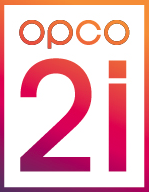OPCAIM was the joint body responsible for financing professional training for the metallurgy sector in France (1.5 million employees).
This kind of organization is responsible for collecting funds dedicated to professional training from companies in a given branch, and for redistributing these funds by financing training for employees and job seekers. Since the 2019 professional training reform, OPCAIM has merged with other OPCAs to become OPCO 2i, the joint body for all the inustrial sectors. As a result, it has become the only joint body for all the industrial sectors.
The requirement: a scalable and tailor-made survey management platform for training evaluation
The OPCAIM Development Department wanted to interview all the people whose training was financed by the OPCAIM, in order to find out the impact of this training on their professional integration.
A request for proposals was issued for the implementation of these surveys, which was won by the research institute Opinion Way and Gide. Opinion Way provided expertise on the content of the surveys, and Gide was in charge of the technical implementation. This is how the project called “évaléO” was born.
The solution proposed by Gide
Gide has implemented, from its SCROLL platform, a dedicated survey management solution for the “évaléO” project.
évaléO manages two types of surveys:
- Recurring surveys, sent to trainees after each training session. For this, OPCAIM just needs to load the trainees’ email addresses; the sending of emails is automated at the end of the training, then 6 months later.
- Ad hoc surveys, sent to companies: each new questionnaire is configured by OPCAIM teams according to their needs. If they have a question, Gide teams are always available to provide assistance and advice.
The results are available in real time for the Development department.
The 25 regional delegations also have access to the results, but only on the data concerning them.
Recently, OPCAIM needed to add new features to the platform: it was necessary to be able to give administrators access to regional delegations, so that they could create their own surveys, with limited functionalities. A shared library of questions has also been set up to facilitate the programming of the questionnaires and make them more coherent.



